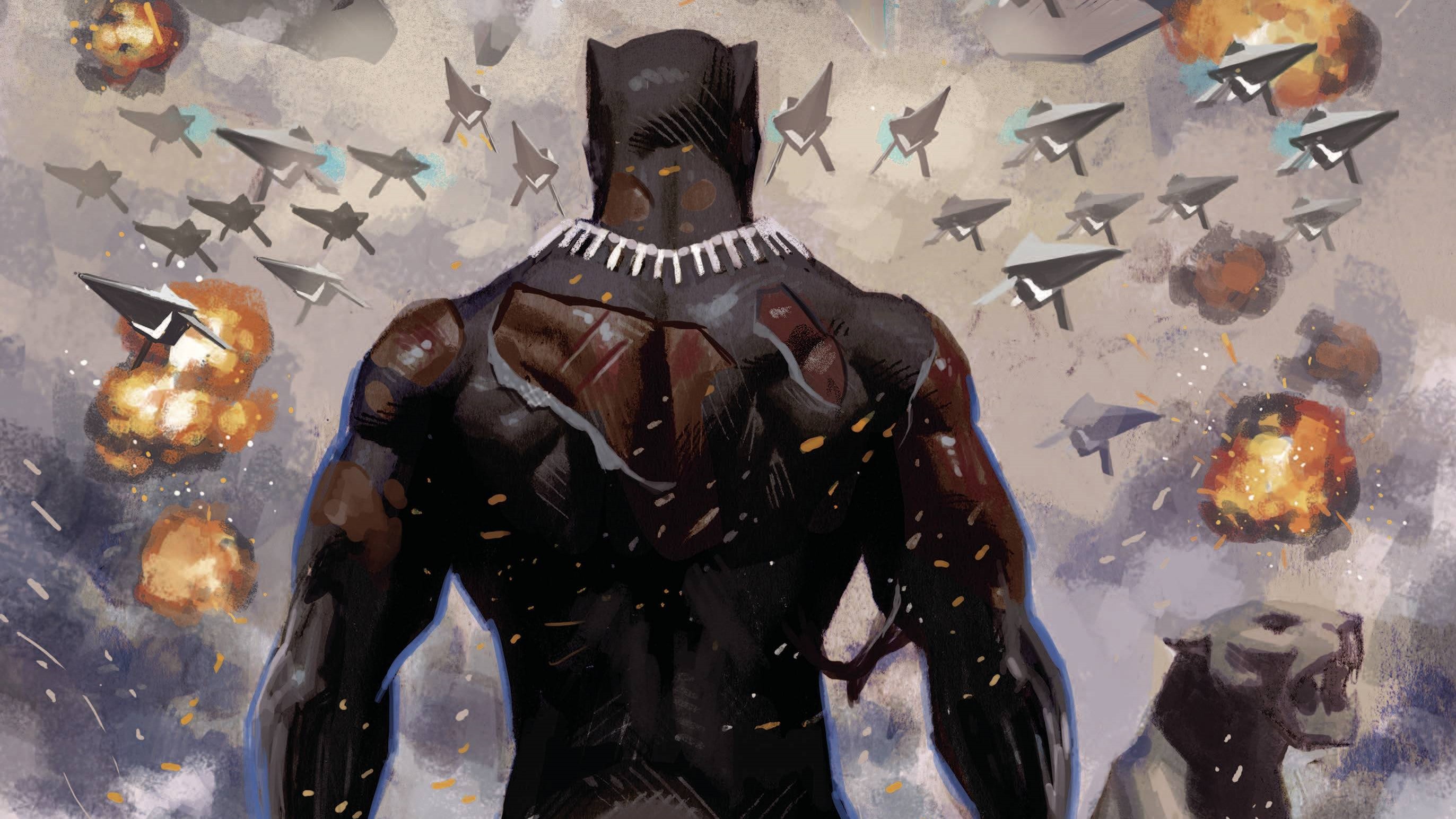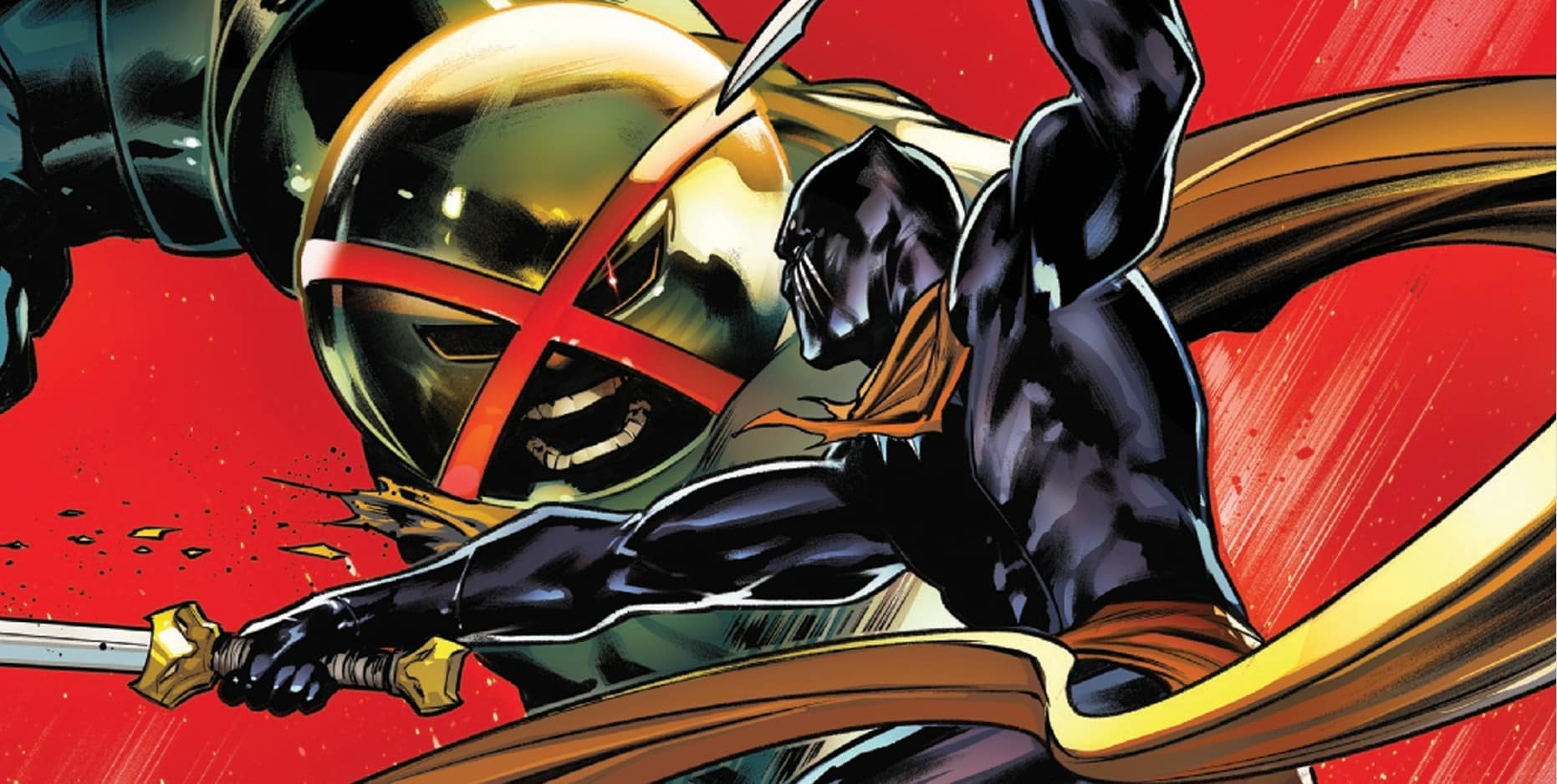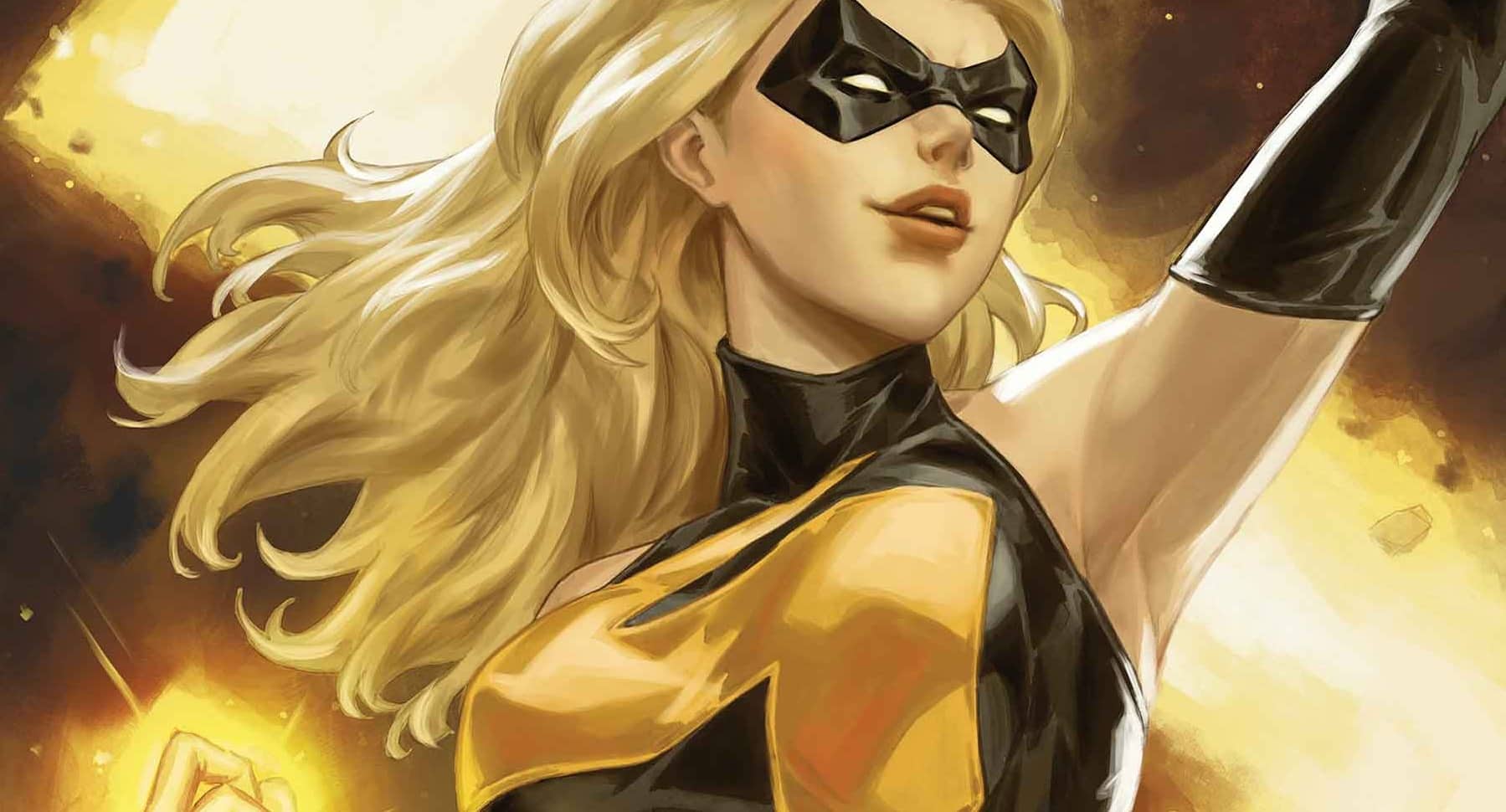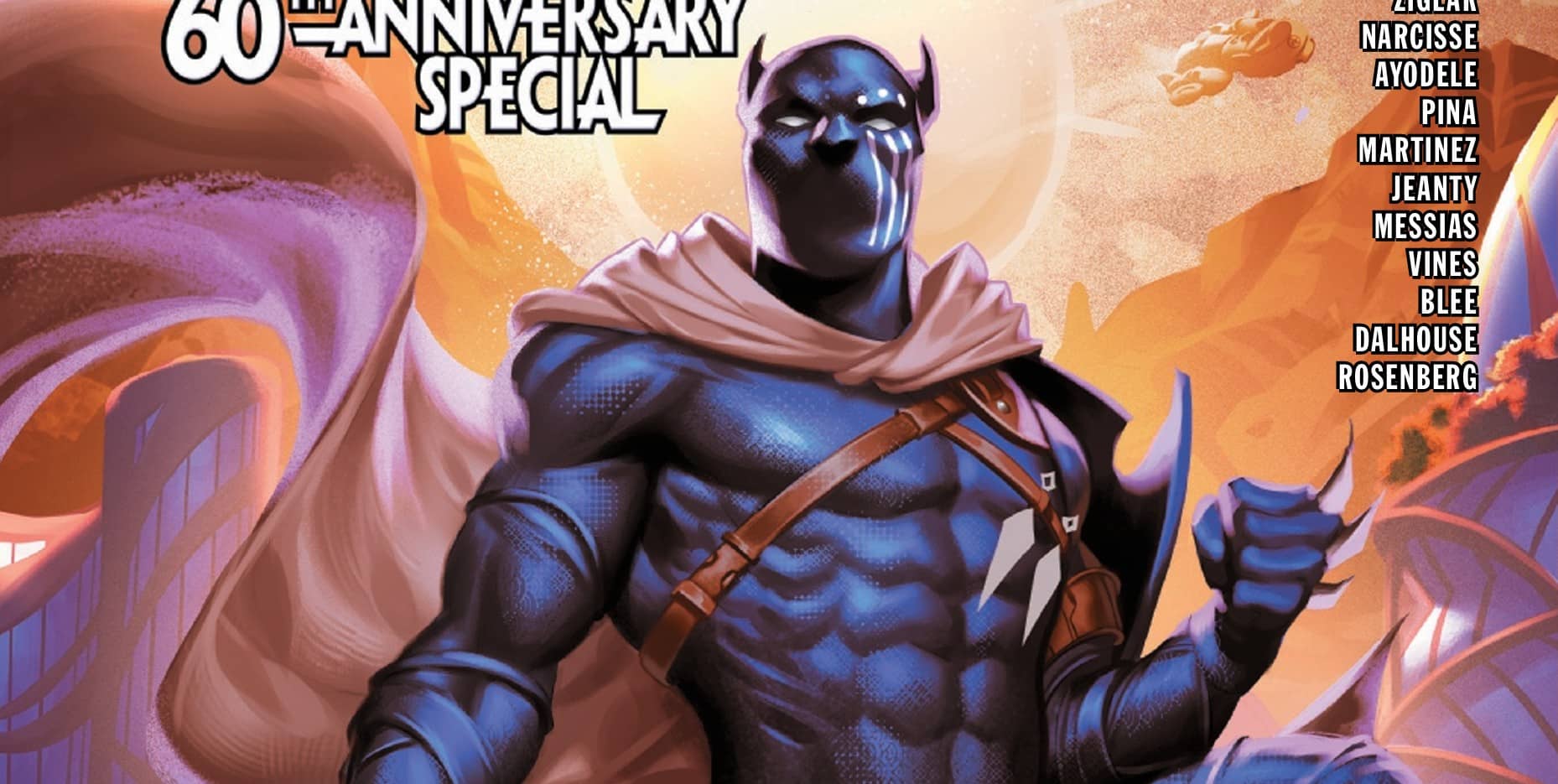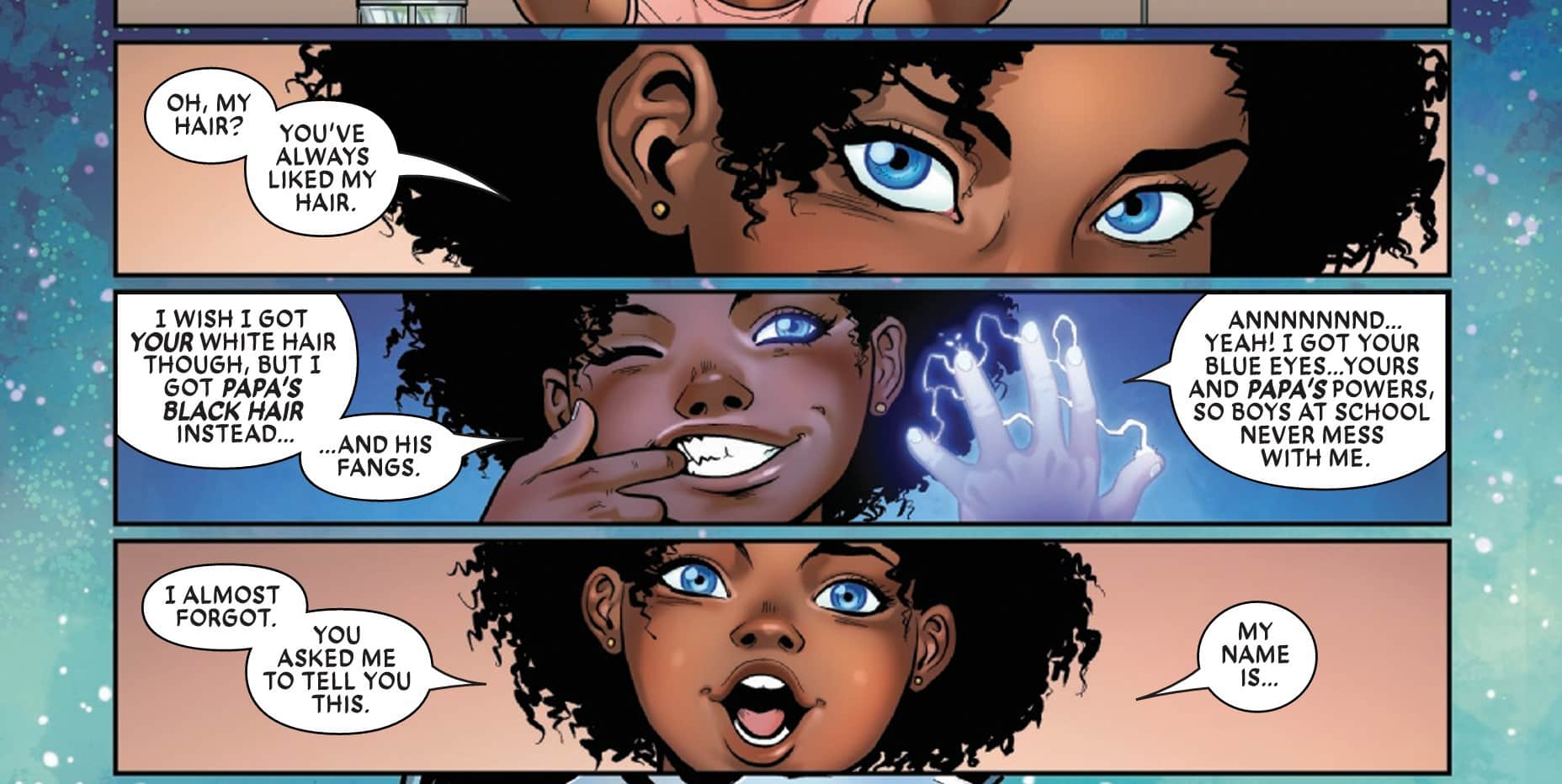Content Warning: This piece reflects on self-harm and suicide.
The day after I became king, [my uncle] offered a single piece of wisdom.
“Power lies not in what a king does, but in what his subjects believe he might do.”
This was profound, for it meant that the majesty of kings lay in their mystique, not in their might.
I am alone in the white-hot room, senses deprived of all sound and stimuli, save a stationary cot and the muffled, muted, almost suffocated sounds of those in rooms adjacent. Their terror softly reverberates through this white-hot room until my body absorbs all their sounds, all their trauma – for where else will it go?
I have committed myself to a hospital. I tried to kill myself a day ago. I didn’t know where else to go; I didn’t have anywhere else to go.
In order to tell you my unvarnished thoughts on Black Panther #25, in order to tell you while Coates’ often uneven run was brilliant and necessary, in order to tell you why picking up Black Panther saved my life, I must tell you about all of this.
And so much more.
____
I am talking to a friend. Life took him to the military and around the world.
Life took me a few places as well.
We met at St. Augustine High School, an all-Black, all-male Catholic school known for molding boys into men – the archetypal visage of Black manhood: Proud. Dignified. Proper. Confident. Well-spoken. Well-behaved (which, much like we train soldiers and dogs, meant being unwaveringly obedient to power, no matter the risk to self). We both would leave St. Augustine and travel separate paths: he in the military, I at yet another all-male school, where those stereotypes, separated by circumstance, still found ways to mold our perceptions of manhood in the same way.
We hadn’t spoken in years since we shared that homeroom in 9th grade. Yet here we were, separated by so much and yet united in our love of comics and our assessment of Coates’ run on Black Panther.
It left us wanting more.
So as we reconnected over a comic, over our disappointment in the comic, over our frustration at the comic, it’s pertinent to remember where our critique came from. We were raised to favor action, boldness, confidence. We were cultured to take our heroes as avatars, as representatives of the most extreme aspects of us, as means for us to live out fantasies that the life that asks so much of us, that takes so much of us, that denies even our manhood, does not provide.
Common critiques of Coates’ run are that it’s boring. wordy and meandering, a work that is thoughtful, yes, but not engaging. Not inspiring. Not, to be blunt, good. We echoed these thoughts in our conversation. As much as we liked the man, as much as we liked the character, as much as we wanted the man and the character to succeed, something was just, well, missing.
How wrong, in retrospect, we were. How wrong we always were. There was nothing missing.
We just didn’t like the reflection we saw.

Followers and fans (and critics) of Coates’ run will be happy to know that the work’s final issue, Black Panther #25, sticks the landing completely. It is unambiguously good, balancing action and thought better than the comic (and the writer) have since the original run began in 2016.
The last two issues of this run are, in many ways, fan service; all the energy we wanted from those early issues, pushed (maybe a bit too much) into the penultimate and final editions. There is action, unbound; team-ups that we can only fantasize about seeing on screen; action, action, and passion. Whatever literary congruity was sacrificed (and, to be honest, none was), was gained in pure excitement. Pure smiles. A comic that often alienated fans because of its intellect stuck the landing because of its heart.
The first few pages are filled with fighting, as T’Challa’s group of Marvel’s finest Black heroes (“we are the multitude; we are the Legion; we are Wakanda”) face off against the re-animated Killmonger, body inhabited by the spirit of his intergalactic rival N’Jadaka, merged with a symbiote (yet thankfully unconnected to the recently ended and oh so long King in Black symbiote saga). The fights, beautifully illustrated by Daniel Acuna, are fluid, engaging, easy to follow, and direct – definitively addressing past critiques.
During Coates’ initial volume of Black Panther, Zenzi (an emotion-manipulating anti-heroine) used her powers to pit brother against brother, Wakandan against Wakandan, using the fear and hatred present in their minds to fuel actions abhorrent and antagonistic. Coates symmetrically uses her powers to similar effect here, as her unwilling alien adherents engage our heroic Legion. Yet she is not alone; she is also helped, confoundingly, by Bast, the Panther God, curiously manifested in the form of a young girl. For the past 8 issues or so, we’ve seen Bast conspire with the enemy. Why would she do such a thing? Why would the god of so much good conspire with such evil?
What was the point?
_____
I sit alone at home, comforted by little more than the hum of an air conditioner and my own thoughts. And what thoughts they are, bouncing boundlessly, recklessly, without organization or purpose, yet all returning to the same questions: Why did I attempt? Why am I here? How could a God who loves me put me in such pain? Why would a god of so much good imbue me with so much self-hatred, so much self-doubt, so many failures?
What was the point?
My questions yielded only more questions, more silence, merging with the incandescent hum of the air conditioner. There would be no answers forthcoming. So to quell my anxious mind, I dove into reading any and everything, from Toni Morrison back to my collection of Black Panther comics, collected since Coates began his run. And as I sat there, re-reading these pieces, confidence shattered and mind ill at ease, I started to recognize something…someone familiar. A man whose mind was rarely at ease, who had to make difficult decisions daily, often at the determinant of his own desires, a man whose guilt drove him down paths dark and derelict.
I recognized myself. And as I did not like myself, as I did not love myself, as I HATED myself, so did I hate that characterization. Why couldn’t he just fight and win? Why must he talk and meander and pause? Why can’t he be prouder, faster, harder, better?
Why couldn’t T’Challa be the Black man I was taught to be?
Why couldn’t I?
Every act of might diminished the King, for it diminished his mystique. Might exposed the King’s powers and thus his limits.
Might made the king human. Breakable.
As the battle rages on, we see Bast and Zenzi discuss a union that feels blasphemous, evil, wrong. And yet, the child-god, ever the trickster, knows what she is doing. She uses her form, observably the form of N’Jadaka’s daughter, to distract him while the rest of our Legion attacks. T’Challa is then tasked to make the killing blow. Our king does not miss. Wakanda, both on earth and around the universe, is saved.
As if there was any doubt.
T’Challa’s triumph, never seriously in question, feels Sisyphean in the end: yes, he’s won, but his victory only means that there’s even more work to do. Victory does not simply yield peace; it yields continued opportunities for our hero to be heroic. I’m not sure victories in comics can be anything but.
And yet victory is only part of the story. The postscript, illustrated by Coates’ original co-conspirator, Brian Stelfreeze, ruminates on what T’challa will do with this new responsibility. In issues past he turned Wakanda into a democracy, recognizing that the people deserved to determine their path for themselves, and his role was to be a protector, not a ruler.
T’Challa now finds himself in control of an intergalactic armada, with ships and species on plants innumerable, all now looking to Wakanda Prime for direction and protection. T’Challa began in this series as a disgraced king. He began this arc as a disposed-of slave. He now rises, in valedictory, as an emperor of legend. The path was never easy, never clear: failure after failure repeatedly forced T’Challa to part with his pride. And yet because he’s so adept at parting with pride, because he leads with experiential humility and love, only now can he be the leader so many people will need.
The path, unwieldy, uncomfortable, almost unmanageable as it was, held purpose. The pain had a point.
Black Panther will undoubtedly read better as one collected work than it has as individual comics. This is not surprising – its author was a novice to writing fiction at the inception of his run, initially plagued with weak pacing, dialogue, and illustrated action. It was never bad (and plenty of bad comics get published by the big two). It was, however, restrained in ways that were frustrating. Enemies were more apt to talk and discuss their motivations as they were to simply attack. And while moral ambiguity is a necessary thing, the discussions felt more intellectual than passionate. More descriptive than emotive. I understood everything that was happening, but I didn’t want to simply understand; I wanted to feel.
Yet as I re-read issue upon issue, I realize that the feeling was always there; it just wasn’t the feeling I wanted to accept. Coates’ held a mirror up to my sensibilities and I, sensing something a little too familiar, became eager to reject that familiarity. Had I just let go of expectation, or what I thought I wanted and embraced what was on the page, embraced what was inside me, the path to enjoyment, to fulfillment, would have been much clearer to see. No, the comic would not have been perfect. Yes, the areas of improvement would still be evident. But the good of the comic – its thoughtfulness, its care shown to hero and villain, the agency given to female characters, the resonant themes of what it means to be in control and to wield power – should be just as apparent. The good should be just as appreciated.
I thought it lacking, but it wasn’t. It was enough. It was always enough. It was always good.
It just wasn’t what I thought I wanted to be.

I am in an unfamiliar place, surrounded by reams and reams of illustrated magazines and action figures. There is an anime on the tv screen behind the teller; I cannot tell what it is; the teller does not acknowledge my existence. I wander, meander down the aisle, an aisle that might as well have been written in some hieroglyphics, as I sought my treasures. Eventually, I figured it out – newest titles up in front, assorted alphabetically. I picked up two copies of Black Panther. I paid the teller, the teller who couldn’t acknowledge my confusion but was all too happy to acknowledge my money. I walked out the door.
It is 2016 and I’ve just bought Black Panther #1, my first comic book.
What began as curiosity about one comic became curiosity about others – about Deathstroke and Deadpool, about Storm and Sage. I began to read more. Learn more. Enjoy more. Buy more. Those few minutes of solace, away from a world that increasingly felt like a dark fantasy, became an escape. A place of certainty in a world devoid of it.
I would turn to these same comics in times of duress. In times of stress. I would think about them. Why characters looked the way they looked; why they were written the way they were written. I began to think of them critically, in the same way I would critique music or art. What began as curiosity became a passion.
About a year ago, in the midst of recovering from my self-induced trauma, buoyed by my thoughts on comics, I wrote a critique of my experience. I sent it, unsolicited. Someone read it. Someone found value in my story. Someone found value in my voice. So I wrote more, and more, and more. I had a voice. I had a reason to hold on, something to do, somewhere to be, based not just in doing, but in being, in thinking, in processing.
I had purpose. Black Panther saved my life.
I am no longer alone in a white-hot room. I am writing this from a workspace, full of entrepreneurs and activists, worker bees and wannabes, the diaspora of the District of Columbia’s bourgeoisie black aspirants. While my plans for the future fluctuate, I have a hope. I have a goal. I have a reason. As T’challa entered this run on his knee and exited exalted, so do I. And just as he is unsure of the next steps but certain that the next steps exist, so am I. That will have to be enough.
That is enough.
I am enough.
So was Coates’ run on Black Panther.
So are you.
So are you.
“And so some amount of my might I have kept from the world, allowing legend and myth to fill the gap.”
Black Panther #2
A proud New Orleanian living in the District of Columbia, Jude Jones is a professional thinker, amateur photographer, burgeoning runner and lover of Black culture, love and life. Magneto and Cyclops (and Killmonger) were right. Learn more about Jude at SaintJudeJones.com.

